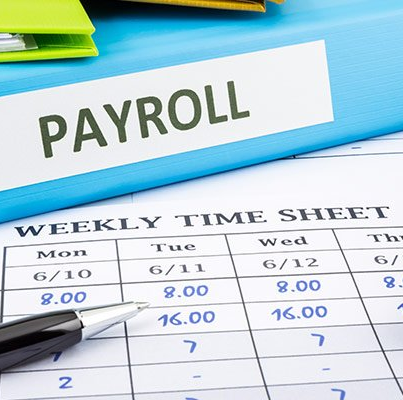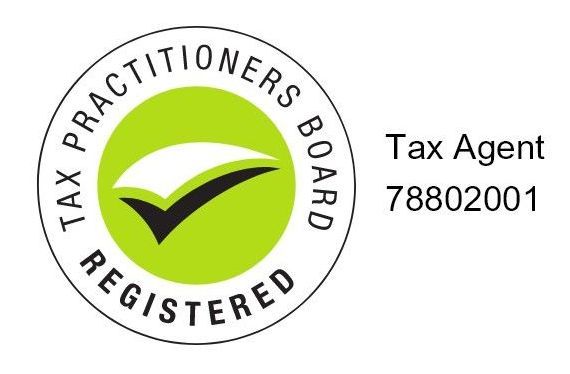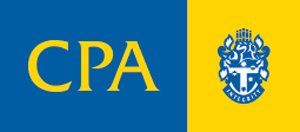O'Donoghue King is a CPA Practice
November Tax Update
Ari King • November 7, 2019
P r a c t i c e U p d a t e - November 2019
Super guarantee opt-out for high income earners now law
From 1 January 2020, eligible individuals with multiple employers can apply to opt out of receiving super guarantee ('SG') from some of their employers, to help them avoid unintentionally going over the concessional contributions cap.
If appropriate for them, they should submit the relevant ATO form to apply for an SG employer shortfall exemption certificate, which releases one or more of their employers from their SG obligations for up to four quarters in one financial year. We can assist with the lodgment of this form.
Note that this measure may not benefit everyone who is eligible, so before lodging the form, it is important to consider the individual's employment arrangements, such as how their pay and other entitlements may change (if at all), and the effect of any relevant award or workplace agreement applicable to them.The measure only became law on 2 October 2019, so to give eligible employees time to make an application, the ATO will accept applications for the 2019/20 financial year as follows: third quarter commencing 1 January 2020 — lodge on or before 18 November 2019; and
fourth quarter commencing 1 April 2020 — lodge on or before 31 January 2020.A separate application is required for each financial year.
ATO recommends updating ABN details for disastrous reasonsThe ATO has provided an important reason for businesses to update their ABN details: to help businesses to manage the coming disaster season. ABN details are used by emergency services and government agencies to help identify and contact businesses during times of emergency and potential disaster.
Therefore, to make sure they don’t miss out on receiving important information, the ATO asks that businesses update their ABN details, including authorised contacts, physical location, email and phone number.Also, if a taxpayer is no longer in business, the ATO asks they cancel their ABN so they aren't contacted unnecessarily.
Reporting asset disposals for CGTAs the ATO's data-matching capabilities increase, they are paying close attention to capital gains made on shares, property and cryptocurrency. It is therefore important to let us know about any asset disposals (which can include an asset's sale, loss or destruction) and to keep records relating to CGT events, including asset disposals, for at least five years after the year in which the event occurred (and maybe longer if you make a capital loss). Good records will also help to work out a capital gain or loss correctly.
Government passes other superannuation legislationThe Government has recently passed legislation requiring insurance in superannuation for new members under 25, and members with low balance accounts, to only be offered on an opt-in basis from 1 April 2020.
Importantly, low balance account holders and young members will still be able to opt in if they want to take out insurance.Additionally, a targeted exemption will allow trustees to elect to provide insurance on an opt-out basis to members employed in emergency services, such as police, ambulance officers or firefighters, or other workers employed in the top 20% riskiest occupations.
Super Lookup 'status' will change if SMSF annual returns are lateThe ATO considers the lodgment of an SMSF's annual return on time to be a fundamental part of an SMSF trustee's obligations.
Consequently, from 1 October 2019, if an SMSF is more than two weeks overdue on any annual return lodgment due date and hasn't requested a lodgment deferral, the ATO will change their status on Super Fund Lookup ('SFLU') to 'Regulation details removed' until any overdue lodgments have been brought up to date. We can request a lodgment deferral on your behalf to ensure the SMSF's status remains ‘complying’ (unless the fund does not meet the agreed date of referral).Having a status of ‘Regulation details removed’ means APRA funds won't roll over any member benefits to the SMSF and employers won't make any super guarantee ('SG') contribution payments for members to the SMSF. The ATO says it is taking this approach because "non-lodgment combined with disengagement indicates that retirement savings may be at risk". While the fund's status is 'Regulation details removed', members should alert their employer to make any SG payments into the employer's default super fund or a fund of the member's choice until the SFLU status of the SMSF has been updated to 'complying'.
Taxpayer liable for excess transfer balance tax despite commutationsA taxpayer has unsuccessfully tried to challenge an excess transfer balance tax liability, despite following the ATO's instructions.The taxpayer was receiving three pensions in 2017, including two capped defined benefit income streams and one account based pension.Based on information reported by the super funds, the ATO became aware that the taxpayer had exceeded his $1.6 million transfer balance cap, and so it issued the taxpayer with an excess transfer balance determination of $376,646.72 on 3 January 2018.The taxpayer then commuted $376,646.00 from his account based pension on 31 January 2018, but additional earnings continued to accrue due to the commutation being 72 cents short, so the ATO had to issue another excess transfer balance determination of $3,841.96 on 1 July 2018 (which the taxpayer acted on by making another commutation in August 2018).Finally, in September 2018, the ATO issued an excess transfer balance tax notice of assessment, assessing the taxpayer for excess transfer balance tax of $2,867.85.The taxpayer challenged this before the AAT, contending that, despite doing what was required of him by the 3 January 2018 letter, he was still liable for the excess transfer balance tax, to which the AAT replied: “That is true but the problem for the applicant is that the determination period on which the tax liability is based is not determined by reference to when the taxpayer is first informed of his excess transfer balance. Further, the applicant does not avoid a tax liability by complying with the request to commute funds out of his superannuation income streams. That is made clear by the letter from the Commissioner dated 3 January 2018 which requests the applicant to commute the necessary funds but goes on to say “when you are no longer in excess of your cap we will send you a separate ‘Excess transfer balance tax notice of assessment’ detailing the tax amount payable”.”
The AAT agreed with the ATO’s contention that the taxpayer was liable for the excess transfer balance tax, that it had been calculated in accordance with the tax legislation, and that there was no discretion for the tax to be waived.
Please Note: Many of the comments in this publication are general in nature and anyone intending to apply the information to practical circumstances should seek professional advice to independently verify their interpretation and the information’s applicability to their particular circumstances.
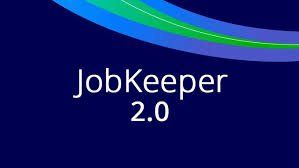
The Morrison Government has announced an extension to the JobKeeper Payment for businesses who continue to be significantly impacted by the Coronavirus. We have summarised the changes for you, and can assist you in determining whether your business is eligible for JobKeeper 2.0 and what rate you will now need to pay your employees. Please contact our office if you have any questions.

The third wave of the Government's Coronavirus Stimulus package was announced by the Prime Minister on Monday, March 30. We have summarised the features of this latest announcement, how this payment will affect your business and employees, and how it compares to the JobSeeker Payment previously announced. Please note: the proposed JobKeeper Payment is not yet law. We understand this is a stressful time for many people. As your Tax Agent, we are here to answer your questions as best we can and assist you with obtaining the necessary assistance you and your families need during this time. If you have any questions, please do not hesitate to contact our office by either phone or email.
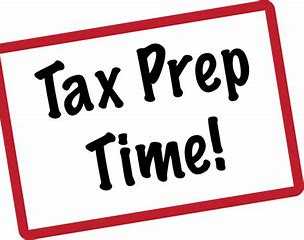
The ATO have invested more money than ever into audits. For every $1 the ATO spends on investigating a lodged tax return, they expect $3 in return for refunds clawed back. This amount is staggering, and it’s why the ATO are focusing on this area. It is important that all income and deductions are declared correctly and can be substantiated. Gone are the days where ‘we put $300 last year, let’s do that again’, as the ATO is using data-matching technology more than ever to verify figures declared in tax returns. The ATO also use benchmarking. They look at the occupation codes on tax returns, and use averaging of income and deductions of other lodged tax returns with the same occupation to determine whether deductions declared are on par. If not, there will more than likely be a flag for an audit. So what are the ATO currently focussing on? Scrutiny of rental deductions In 2017, the ATO examined a random sample of rental property deductions and found that nine out of 10 contained an error. The ATO will be looking very closely at these deductions this year and that its detection methods are becoming more advanced. Work-related expenses still on the radar When it comes to work-related expense claims, the ATO is looking more closely into deductions claimed where employees have not spent the money [for example, standard deductions such as laundry, cents per kilometre car claims], not apportioning expenses where there is private use, and not keeping records to support claims. Even where record-keeping exceptions apply, taxpayers must still be able to show how they calculated the claim. Different instant asset write-off rules While the instant asset write-off threshold for small businesses has been increased to $30,000 and extended to 30 June 2020, the rules for this deduction differed for small business entities and medium-sized business entities for the year ended 30 June 2019. There has also been a common mistake detected by the ATO that some taxpayers are using this deduction for rental properties, and this is not correct. Businesses with a turnover of up to $10 million can claim a deduction for each asset purchased and first used or installed ready for use, up to the following thresholds: $30,000, from 7.30pm (AEDT) on 2 April 2019 until 30 June 2020 $25,000, from 29 January 2019 until before 7.30pm (AEDT) on 2 April 2019 $20,000, before 29 January 2019 Businesses with a turnover from $10 million to less than $50 million are also now eligible for the instant asset write-off for purchases up to $30,000 each. They can claim a deduction for assets purchased and first used or installed ready for use from 7.30pm (AEDT) on 2 April 2019 until 30 June 2020. Extending payment reporting obligations to new industries The Taxable Payments Reporting System (TPRS) has now been extended to cleaning, courier, road freight, information technology (IT), security, investigation and surveillance services. These sectors are considered high risk for black economy activity and those operating in these industries need to report information annually to the ATO about the payments they make to contractors for services. If you require help completing or lodging your 2019 tax return, or are a small business and have questions surrounding the instant asset write-off incentive, the changes in the Taxable Payments Reporting System or need help with the new Single Touch Payroll (STP) requirements, please contact our office on (02) 4325 0314 or click below to email us.

The rise in the popularity of cryptocurrency and other crypto-assets in recent years has forced the Australian Taxation Office (ATO) to develop ways to track and monitor transactions in this area of investment to ensure taxpayers are declaring any capital gains liabilities when assets are sold for a profit.

Bitcoin and other cryptocurrencies have recently become increasingly popular as an investment, and many SMSF trustees are now considering whether to invest in Bitcoin. However, as this is a relatively new asset class, there is still some uncertainty as to whether it is prudent (or even possible) for an SMSF to invest in Bitcoin.



